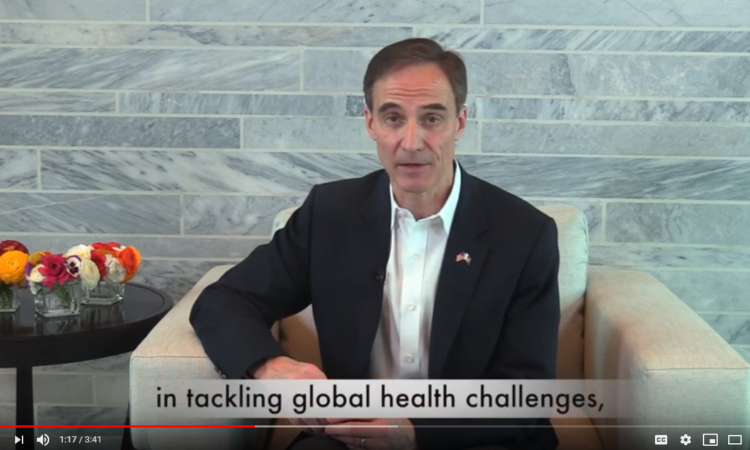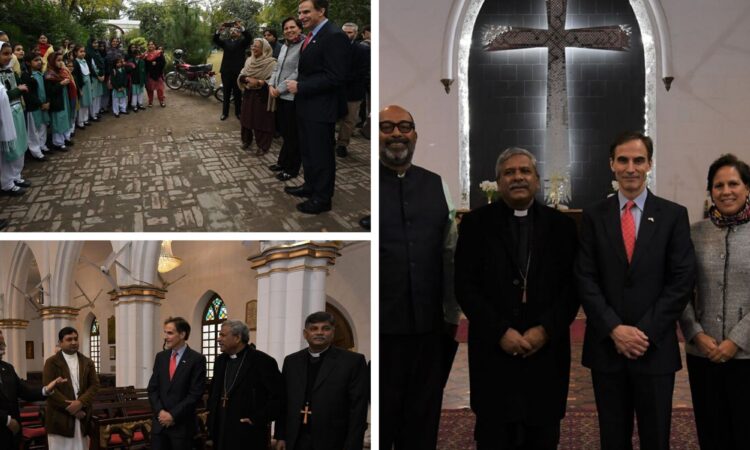Ask a COVID-19 Question
Last updated: [12/01/2020]
Country-Specific Information:
- The economy is predominately open, with services such as grocery stores and other businesses operational. Some streets, neighborhoods, and commercial zones are currently under lockdown in Pakistan’s major cities. Areas identified by authorities as COVID-19 “hotspots” could be locked down without advance notice. Masks are required to be worn when in public, and violators could be fined by law enforcement. Educational institutions closed November 26 and are expected to reopen in early 2021. Pakistan issued new restrictions for weddings and large gatherings November 27. Events must be held outdoors, are limited to 300 people, and cannot last for more than two hours.
- COVID-19 transmission is increasing throughout the country, and cases and deaths have been rising since October. The healthcare system is showing signs of stress which may limit routine and emergency medical services. Hospitals are reported to be turning away patients due to reaching capacity and staffing shortages. Detailed information is available on the Government of Pakistan’s Ministry of National Health Services, Regulations, and Coordination website, accessible here.
Entry and Exit Requirements:
- Are U.S. citizens permitted to enter? [Yes]
- For detailed information for international visitors, please visit the following websites:
- Is a negative COVID-19 test (PCR and/or serology) required for entry? [Yes]
- Pakistan’s Ministry of National Health Services, Regulation, and Coordination issued updated guidelines for arriving passengers on November 18. On November 20, the Pakistani Civil Aviation Authority’s (PCAA) released its implementation guidelines, which began November 20 and are valid until December 31. Keep current on your airline’s requirements for initiating a journey to Pakistan.
- All passengers are required to install and register on the Pass Track app prior to issuance of boarding pass to Pakistan at point of original embarkation (available for Android and Apple devices).
- Passengers who do not have android/Apple phones and are unable to download the Pass Track app will need to enter their data on an accessible web-based form and provide a paper printout of the same prior to issuance of boarding pass to Pakistan at point of original embarkation.
- All passengers will also have to fill out a health declaration form (HDF) before landing (see Questionnaire for Travelers).
- Countries are categorized into Category A, B, or C primarily based on epidemiological risk assessment, reviewed every two weeks by the Ministry of National Health Services, Regulations, and Coordination.
- Travelers arriving from Category A countries:
- No COVID-19 RT-PCR (real-time, reverse transcription polymerase chain reaction) test required before or after travel.
- Travelers arriving from Category B countries (on November 30 the United States falls under this category):
- Show proof of a negative RT-PCR test result not older than 96 hours prior to commencement of original travel.
- Travelers arriving from Category C countries:
- Show proof of a negative RT-PCR test result not older than 96 hours prior to commencement of original travel. All arriving from a Category C country will also take a mandatory RT-PCR test upon arrival in Pakistan.
- Are health screening procedures in place at airports and other ports of entry? [Yes]
- Upon arrival, all travelers will line up six feet (two meters) apart and undergo thermo-screening by thermo-guns and/or thermo-scanners. Detailed information for arriving passengers is available in the Guidelines for International Passengers Arriving at Airports in Pakistan. For the most up-to-date information regarding visa extensions for residents and/or tourists, please visit: http://www.dgip.gov.pk/Files/Visa.aspx.
Movement Restrictions:
- Is a curfew in place? [No]
- There are government “smart” lockdowns (i.e., small localities, such as a building with multiple units, streets, and small neighborhoods, may be sealed to limit the spread of the coronavirus.). Hours of operation for businesses may be reduced in localities under these targeted lockdowns.
- Are there restrictions on intercity or interstate travel? [No]
Mask Requirements:
- The Pakistan National Command and Operation Centre (NCOC) announced October 28 that, effective immediately, to prevent the spread of COVID-19, masks must be worn when in public, countrywide. Islamabad Capital Territory (ICT) ordered masks must be worn in public places, including bazaars, shopping malls, and restaurants or while using public transport. ICT’s announcement warns those not following the order may be subject to legal action. The order will be in force for a period of two months.
Quarantine Information:
- Are U.S. citizens required to quarantine? [No]
- Symptomatic travelers will be required to take a COVID-19 RT-PCR test and its results submitted to the designated Pakistani authorities within 48 hours of arrival. In cases found positive for COVID-19 based on a test upon arrival, travelers may be required to comply with isolation procedures. For detailed information, please check the Guidelines for International Passengers Arriving at Airports in Pakistan.
COVID-19 Testing:
- U.S. citizens departing Pakistan can obtain COVID-19 tests from any government or private hospital or lab of their choice. For a list of hospitals and labs providing COVID-19 tests, please check the Government of Pakistan’s Ministry of National Health Services, Regulations, and Coordination website, accessible here, or email info@nhsrc.gov.pk. Some airlines may only accept results from certain facilities. Please contact your airline for a list of these sites.
- The average price of the COVID-19 test is between 6000 and 9000 PKR. The individual is responsible for the cost of the test.
- U.S. citizens arriving in Pakistan from the United States must show proof of a negative RT-PCR test not older than 96 hours prior to travel. For more information, please check the updated Guidelines for International Passengers Arriving at Airports in Pakistan.
- Please ensure you have the results with you when you board the plane and when you deplane in Pakistan.
Transportation Options:
- Are commercial flights operating? [Yes]
- Is public transportation operating? [Yes]
- According to the Government of Pakistan, individuals using public transportation – trains or buses – should wear facemasks and keep a distance of at least six feet from other individuals. Additional information is available here.
Consular Operations:
American Citizens Services:
The ability of U.S. embassies and consulates to provide emergency services to U.S. citizens continues to be limited. As U.S. embassies and consulates reopen their services to the public in a phased and safe manner during the COVID-19 pandemic, the U.S. Embassy in Islamabad and U.S. Consulates General in Karachi and Lahore resumed limited in-person passport appointments and notarial services on September 8, 2020. Appointments will be scheduled based on prioritized service needs, including:
- Children who have yet to be documented for the first time as U.S. citizens.
- U.S. citizens who are traveling outside of Pakistan within six weeks and must renew their passports before travel.
- U.S. citizens who do not have travel plans, but for documentation purposes need to renew their expired passports or who have passports that will expire within six weeks.
- Parents of U.S. citizen minors who are providing written and notarized authorization to renew or apply for their child’s passport (DS-3053 Statement of Consent: Issuance of a U.S. passport to a Minor under Age 16).
- Emergency notarial services.
Please click here for more information on services for U.S. citizens.
Visa Services:
The United States Embassy in Islamabad and the Consulate General in Karachi have resumed processing a limited number of student and academic exchange visitor visas, media and journalism visas, and petition-based work visas not subject to Presidential Proclamation 10052. The United States Embassy in Islamabad has resumed processing a limited number of immigrant visas primarily for spouses and children of U.S. citizens. We look forward to resuming routine visa services as soon as possible but are unable to provide a specific date. Please click here for more information about visa services at the U.S. Embassy in Islamabad and the Consulate General in Karachi.
Local Resources:





















